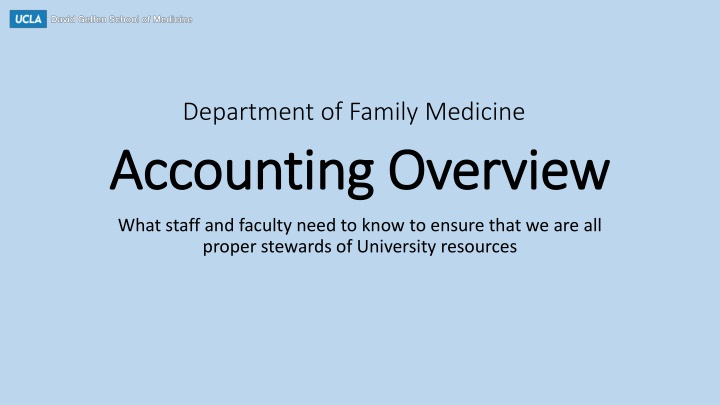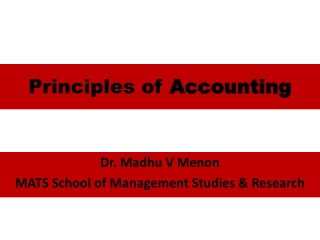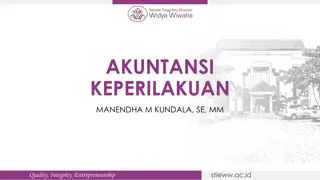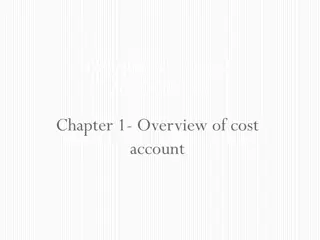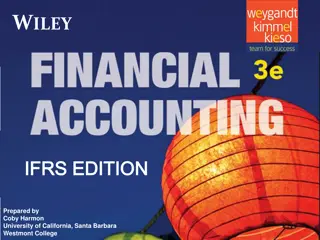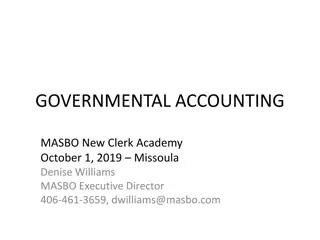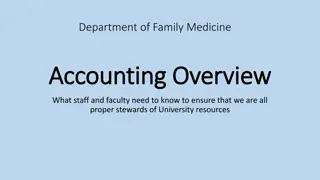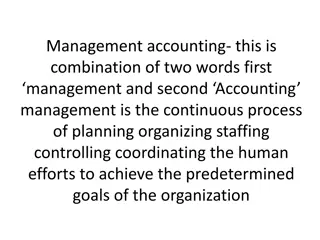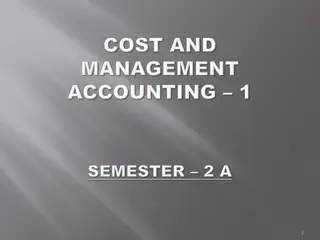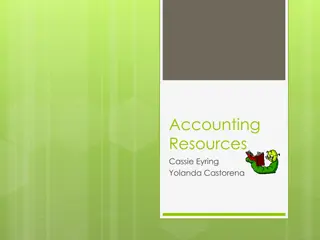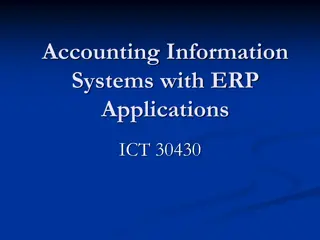Effective Accounting Practices for University Resources
Proper stewardship of University resources in the Department of Family Medicine requires adherence to checks and balances, understanding ownership of funds, following the LA Times Rule, and implementing general accounting procedures. These practices ensure transparency, accountability, and compliance with funding regulations.
Download Presentation

Please find below an Image/Link to download the presentation.
The content on the website is provided AS IS for your information and personal use only. It may not be sold, licensed, or shared on other websites without obtaining consent from the author.If you encounter any issues during the download, it is possible that the publisher has removed the file from their server.
You are allowed to download the files provided on this website for personal or commercial use, subject to the condition that they are used lawfully. All files are the property of their respective owners.
The content on the website is provided AS IS for your information and personal use only. It may not be sold, licensed, or shared on other websites without obtaining consent from the author.
E N D
Presentation Transcript
Department of Family Medicine Accounting Overview Accounting Overview What staff and faculty need to know to ensure that we are all proper stewards of University resources
Checks and Balances Checks and Balances Good accounting practices incorporate a system of checks and balances to ensure that no one person has control over all parts of a financial transaction. This means the person requesting the financial transaction must be different from the person who approves it and that person is different from the one who processes it. Why is this important? Why is this important? UCLA is a state agency, funded in large part by tax dollars. In addition, many of our research projects are federally funded. Both of these factors mean there is an extra layer of scrutiny over how we spend money and it s important that we have systems in place to prevent fraud and abuse.
Whose money is it, anyway? Whose money is it, anyway? All funds belong to the University, whether they are grant funds or unrestricted donations. The Regents of the University of California are the ones who receive the money and they are entrusted with proper oversight and spending by its faculty and staff. The funds do not belong to the Principal Investigator (PI), so although they must approve all transactions from their assigned accounts, it is ultimately the University who has the final say on what is/is not allowable. If funds are awarded to the University via contract or grant agreement, the University is required to abide by the agreement language regarding usage of funds. If a PI or employee asks you to purchase an item that is not in compliance with University or sponsor restrictions, you have the right to refuse. Discuss with the Fund Manager, your supervisor, Department leadership, or another trusted source.
FAKE Laura s Laura s LA Times LA Times Rule Rule If the newspaper were to publish details regarding the expense, would you or the University be embarrassed? If yes, do not proceed with the expense. Business justifications should be detailed, comprehensive, accurate, and always included in your expense documentation/purchase requests.
General Accounting Procedures General Accounting Procedures All transactions must be pre-approved before an expense can be incurred. This is achieved by completing a Purchase Request Form and obtaining approvals before the University commits to spend funds. (You should not be purchasing items and then seeking reimbursement or payment of vendor invoices after the fact; with the exception of travel or emergency scenarios) Anyone who is aware of fraudulent or illegal business transactions conducted in the name of the University must report them immediately. Documentation should be organized and maintained for reconciliation and auditing purposes.
Authorized Signatures/Signing Officials Authorized Signatures/Signing Officials Only Authorized Officials (AO) are allowed to sign off of contracts. Typically AO s are senior staff in OCGA or Purchasing. If a vendor has terms and conditions (T&C) attached to their quote, that is considered a contract and requires AO signature. You should include the T&C (or any other contract) when you submit a Purchase Request Form so that AO signature can be obtained prior to the creation of a Purchase Order (PO). PI s, research personnel, fund managers, purchasers, the CAO none of these people are Authorized Officials. (They can only sign off when given explicit permission to do so from an AO).
Forms/Processes Forms/Processes Every transaction that requires payment, must be pre-approved and signed off by someone with authorization to spend. That applies to ordering supplies, hiring a consultant, purchasing flights, utilizing parking services on campus, securing a venue for an event, paying a guest lecturer, utilizing a campus lab, etc. Unfortunately, UCLA has multiple forms and processes that are used for different kinds of transactions. Knowing which one to use can be confusing. The next slide provides some general guidance.
What Do You Need? Supplies Contractors/Consultants UCLA Campus Services Airfare Use this form/process Purchase Request Form Contractor and Consultant Checklist Varies depending on campus unit 1. Contact UCLA travel for itinerary, 2. Obtain FAU and approval from Authorizer, 3. Email itinerary, justification, and FAU to Approver and Purchaser to obtain a PTA Purchase Request Form, often requires AO signature on T&C Travel & Entertainment Reimbursement Form Travel & Entertainment Reimbursement Form Obtain quote from DGIT, then Purchase Request Form Depends on purpose (Human Subjects vs. Non-IRB requests) Check Request Form Mileage Reimbursement Form Off-Campus Event Space Travel Reimbursement Entertainment/Catering Computers/Software Gift Cards Guest Speaker Fees Mileage Reimbursement Notes: If a vendor gives you a formal quote, contract, or other document, you must include it with your Purchase Request form
Timeline and Additional Review/Approval Timeline and Additional Review/Approval The University gives each Department approval authority within certain limits. For any purchases made within those limits, a purchase order can be generated within 2-5 days after the Authorizer has signed off. All other items require approval by campus and processing times vary significantly. Examples of items that require campus approval before a PO number can be created: Consultants Service contracts (more time required for vendors that will have access to PHI) Any order exceeding $10,000 on a federal grant or $100,000 on an unrestricted account
Quiz Quiz 1. Who can sign contracts? Only Authorized Officials having signing authority. Occassionally AO s will grant permission to others to sign, but this permission must be received prior to signing off on any agreement. 2. Do I need to obtain approval before purchasing a campus service? Yes, all purchases, whether external or internal, require prior approval. 3. Do I need to maintain copies of what I ve submitted? Yes, requesters and/or PI s must maintain copies of submitted purchase requests and supporting documentation for reconciliation and auditing purposes. 4. Funds belong to: A. The faculty member or PI to whom the account is assigned B. The Regents of the University of California C. The person requesting the purchase D.The Department of Family Medicine
